Thoughts on Mobile Tech 4 Social Change UK
Saturday was a bit of a Busman's Holiday for me. The Mobile Tech 4 Social Change Camp was held in the London offices of Vodafone. Certainly an interesting venue for a BarCamp - not quite as plush as the Guardian venue for #BarCampLondon09, nor as hip as Wallacespace for SMCLondon09, but surprisingly good for a smaller camp. It's certainly given me a new appreciation for the office space in which I spend most of my time.
Organised by MobileActive.org, this was a BarCamp for people passionate about using mobile technology for social impact and to make the world a better place. This was a step change from most BarCamps which - if we're honest - are often about showing off. Whether it's grandstanding on a particular topic or demoing something cool they've found, BarCamps can feel a bit like a grown-up version of "Show and Tell". Because this BarCamp was aimed tightly on the twin subjects of Mobile and Social Change, I found it refreshingly focussed. There was a real sense that everyone there wanted to make a difference.
First up, a massive thanks to Katrin and Dan for getting the event up and running. Organisers can make or break a BarCamp and these two were the perfect mix of cat herder and presenter.
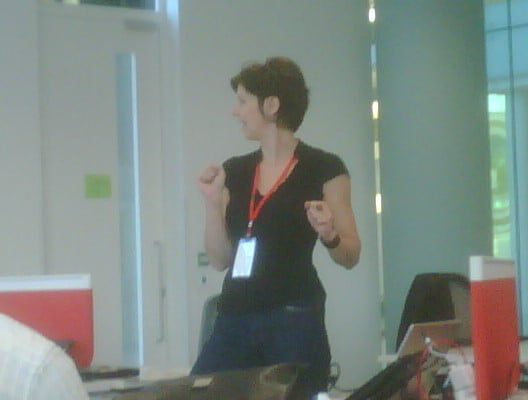
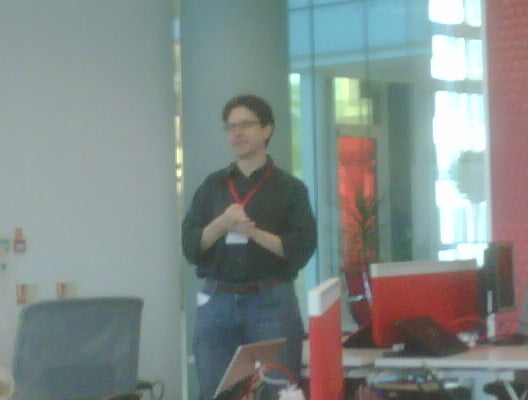
We started with a presentation from Karina Brisby, G20Voice project founder and Oxfam Digital Campaigns Manager. I wasn't surprised that Oxfam have a dedicated digital team - what did surprise me is that the team is so small and yet was able to organise events like G20Voice.
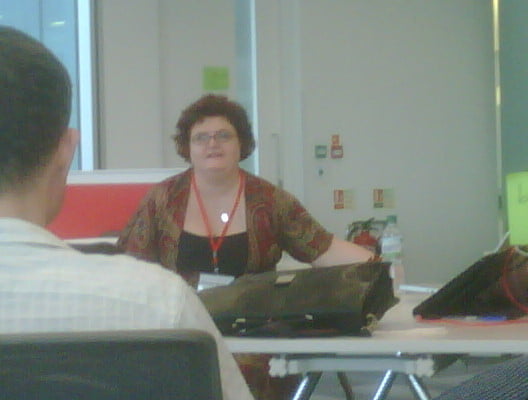
Some points I picked up on
- Oxfam used SpinVox and AudioBoo to empower people around the world to communicate with G20Voice. These technologies enable people to literally have their voice heard. In many ways, voice is more powerful than a traditional petition.
- I wonder if a service like Phreadz could be used with 3G phones to make this sort of campaigning more powerful. Obviously, it requires a higher technology base.
- Oxfam are looking to embed their applications & content into mobiles.
- Interesting. Would you buy an Oxfam co-branded Nokia (for example)?
- In some places, being seen to talk to Oxfam can be dangerous. Mobile is discreet & more importantly fast. Essential for NGOs
- Targeting is key to campaigning. While millions march against war, it only take a few high profile people to whisper in the right ears to make a difference.
- Perhaps the most inspiring statement of the day "Even in repressive regimes, nerds find a way to get around restriction!" Because SMS can be monitored by the state, nerds in some countries use Bluetooth transmitters hidden in flowerpots to spread their message. Nerd are nerds wherever you go!
- If you're in the UK, you can donate £5 to Oxfam RIGHT NOW! Text "HUNGRY" to 87099.
Next up, Scott Smith, a "Futurist". Scott had organised a game for us...
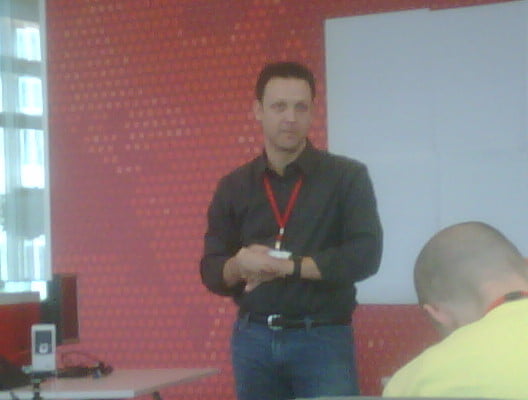
I'll admit to being a bit sceptical; usually team "bonding" games are a huge turn-off for me. This was no ordinary team game. We had cards with specific tasks and restrictions. We had to come up with a solution to a problem - in our case, raising money from families to help provide clean drinking water. We had to consider factors like m-banking, open source, anonymity, NFC, etc. Here's the result - a service which lets you donate unused minutes from your airtime plan to a charity.

Combined with social network integration, "rewards", reporting, usage of local labour. I was astounded with what we had devised in just 30 minutes. All the other teams had similarly inspiring ideas. I really feel that we could leverage our idea to change fund-raising in this country. Kudos to Scott for a brilliant and thought provoking session.
I flitted between several of the sessions, chatting to people. Here are two of the most memorable session.
The-Latest.com is a Citizen Journalist / UGC website with a heavy focus on non-reported or under-reported news. Marc Wadsworth and Deborah Hobson were very open in how the site works and what its challenges are.
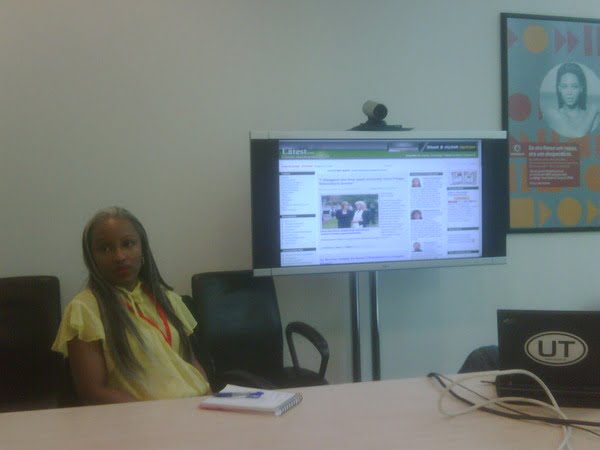
Citizen journalism is a rapidly growing field. I don't want to go in to details about the failing of mainstream media - failings that blogs often have - but it has become clear that we urgently need alternative news sources. Allowing people to report on stories which interest and impact them is much needed.
Finally, Dan set up a session on open sourced, crowd sourced news gathering for crisis zones. A heavy topic, but one with increasing relevance. In particular, this looked at Ushahidi and ways in which it can be improved and expanded.
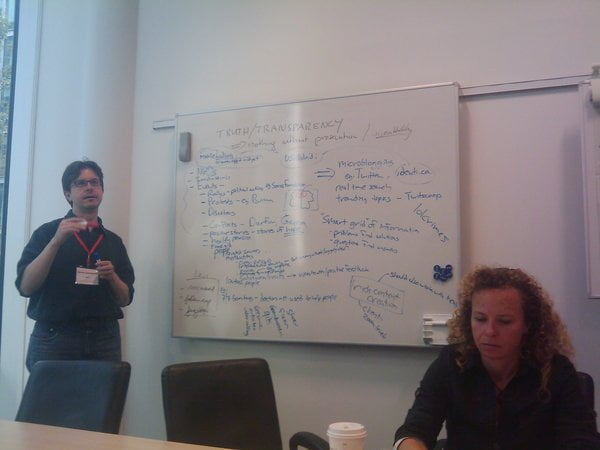
The one thing which worries me about ideas like this is how you manage trust in an anonymous network. You need anonymity to protect people from recriminations - but you need trust to ensure that you're not being used as a vector for misinformation.
I want to give my thanks to everyone who was at M4ChangeUK - far too many to mention individually. BarCamps live or die based on the attendees; this one soared into the sky.